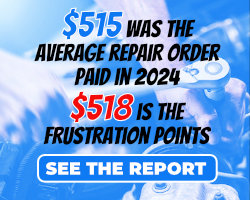The Economist recently pointed to AI’s growing importance, stating that “the world’s most valuable resource is no longer oil, but data.” And with the vast majority of data—over 90 percent—being generated over the past two years, it’s no surprise that businesses across industries are looking for innovative ways to capitalize on this new form of riches.
In the automotive sector, AI, in combination with unprecedented processing power, is bringing about radical changes. Here are the categories where you can expect to see AI impact first:
Customer Service
In the next few years, the automotive retail industry will witness significant changes in the customer service arena. Gartner shows that by 2020, 85 percent of all customer interactions will be handled without a human agent. This means a greater reliance on AI to resolve customer service issues before they arise and to lower customer abandonment rates. Additional functions will be to reduce customer complaints and improve satisfaction levels..
A May 2017 study from Linc, in partnership with Brand Garage, highlights the tremendous emphasis U.S. retail executives are placing on AI to improve customer communication. Moving forward, 87 percent of the 100 retailers surveyed plan to increase the use of AI to service their customers in the next few years.
How these changes will benefit automotive retail are involved in predicting car shopping preferences for customers, such as model type, color and features. AI will also be employed in the customer service arena to engage shoppers with dealers, provide immediate information, automate and enhance customer experiences while increasing sales.
Augmented and Virtual Reality Shopping
Augmented Reality (AR) is expected to grow to $120 billion in revenue by 2020, bringing significant advances to online shopping experiences. Research indicates that approximately 40 percent of consumers would be willing to spend more on a product if it offered an augmented reality experience. More and more companies are utilizing AR to attract customers and increase sales. For example, IKEA offers an app that uses AR to let customers see how furniture looks in their house, using a smartphone’s camera and display. Another one, Tap Painter, is a augmented reality app that allows you to determine which color you should paint your walls.
AR is also finding its way into automotive retail where consumers can shop anywhere simply by raising their smartphone and pointing it at the vehicle of interest. On a lot, customers can scan a car to instantly display pricing and other relevant data about the vehicle.
Predictive Ad Targeting
The combination of big data and machine learning has led to the rapid growth of predictive marketing, enabling advertisers to efficiently expand their targeting efforts. Big data, AI-powered advertising tools and predictive analytics allow retailers to more effectively examine buying habits and target advertisements accordingly.
An Ohio State University study found that behaviorally targeted ads can improve click-through rates by as much as 670 percent, when compared with ads that are not behaviorally targeted. Another study revealed that targeted advertisements that are based on user behavior receive 6.8 percent conversions, compared to 2.8 percent for non-targeted ads. With higher click-through rates and conversions, companies are more likely to see improved ROI.
Sales Prediction
The use of AI is making its mark in the retail industry as brick and mortar businesses struggle to compete with e-commerce. Data and analytics have the ability to provide greater insights that allow retailers to make better-informed decisions and become more profitable.
This is especially significant in the automotive retail industry, where the pressure on dealers to move inventory is unlike any other in the retail space. A 2016 article published by Harvard Business Review noted that retailers need to think more like tech companies, analyzing factors, such as supply, demand, vehicle features and price to predict when cars will sell and for how much.
Intelligent Marketing
Traditionally in the auto industry, the idea of personalized service conjures up images of a potential car buyer entering a showroom looking for a meaningful shopping experience. But is it possible to deliver the same level of personalization on the internet? While the human factor may be missing, AI has the ability to analyze more data for make accurate predictions, using the feedback from those decisions to make better decisions going forward.
AI allows retailers to examine automated personalization based on location and demographics, analyze current and past customers, and determine where they are in the sales funnel.
Ultimately, intelligent marketing has the potential to build loyalty, foster engagement, and boost sales to a much larger market and this is a good thing for those in cars.
Adapting to the Future
Retail has experienced tremendous change in the past five years, even more so in the auto industry. A recent study conducted by Cox Automotive found that from start to finish–beginning with an internet search and ending with their signature–car buyers carve out a grand total 14 hours and 48 minutes in their search. Approximately 60 percent of the time is spent online both researching specifications and availability.
To adapt to these changes, dealers will need AI to provide customers with a smart, AI-driven automotive assistant to walk them through every step of the shopping, purchasing, and ownership experience.
On Deck
While change is always constant, the automotive retail sector can anticipate an escalation of technological innovations within the next few years. The future of automotive will be driven by AI. Dealers will be able to predict, understand and deliver what exactly their customers need and customers will be escorted through a improved shopping, buying and ownership experience.







